New Local Government Act Tabled 2018
Today the Hon Marlene Kairouz, Minister for Local Government, tabled the Local Government Bill 2018 into the Victorian Parliament.
The Bill legislates the scope and responsibilities of Victorian councils and councillors and will supersede the current Local Government Act 1989.
These responsibilities are far reaching, and the Bill highlights the fact that the scope and business of local government are complex, and the role of a councillor is not simple.
The VLGA specifically advocates for the importance of the role of effective local government, one which models the principles of integrity and transparency.
Kathryn Arndt, VLGA CEO, stated “elected representatives at any level of government must act with integrity and show leadership in good governance. Having been elected by the local community it is vital that councillors serve in the interests of their community and make transparent and accountable decisions”.
Victorian councillors have governance obligations which are legislated for under the Local Government Act. The Bill tabled today reinforces the standards of governance by councillors. If passed, the new Act will require councils to develop four-year budgets and meet high standards in strategic planning and financial management.
The Bill includes a councillor code of conduct that requires all councillors to conduct themselves with integrity.
The VLGA commends the Bill which now expressly addresses sexual harassment as part of the councillor conduct framework. The VLGA advocated strongly during the Exposure Draft consultations that the definition of serious misconduct be expanded to include sexual harassment. The Bill tabled today reinforces that any form of harassment is unacceptable, however, the details of the proposed new councillor conduct framework of the Bill will need to be scrutinised in more detail to understand how this type of behaviour will be responded to, particularly in the event of an investigation finding a councillor guilty of misconduct.
The VLGA also welcomes clarification in the Bill with respect to the Minister’s ability to suspend a council. This will only be possible in which at least half of the councillor positions have become vacant and it is apparent that good governance has been compromised. The VLGA acknowledges and supports the limit of twelve months maximum suspension period for council and councillors that can be imposed by the Minister.
Local government plays an integral and well recognised role in connecting and caring for people and communities, as evidenced by state and federal levels of governments delegating the delivery of critical services to local government.
In Victoria, the ability to deliver services in line with community expectations has been complicated by the rate capping policy imposed on councils and which continue to be imposed on councils in the proposed new Act. This policy limits councils’ ability to raise revenue to cater for such demand, particularly in a cost-shifting environment. The VLGA is therefore disappointed that the Bill does not review the rate capping policy by the end of 2020 to coincide with the next round of council elections and giving the incoming councils of 2020 an opportunity to work collaboratively with the state government on this policy.
These factors, together with the scope and complexity of the business of local government, combine to place significant governance responsibilities on elected councillors. Where they may once have been seen as community leaders and volunteers, councillors are now having to juggle these roles with financial oversight, strategic policy, risk assessment and the organisational oversight of multimillion dollarbusinesses – something more akin to directors of corporate entities.
In addition, given the political system in which local government operates, councillors are expected to play significant lobbying and advocacy roles throughout the election cycle.
Now more than ever, Victoria needs councillors with community standing as well as financial, organisational and political acumen.
While the Bill proposes that the Minister has a responsibility to determine a single voting method for all councils, in contrast to the current situation where councils make that decision, the VLGA is disappointed that the Bill does not introduce partial preferential counting of votes. VLGA President Cr Marg Attley asserts “this has the potential to increase the rate of informal votes, particularly given the fact postal voting method tends to attract a higher number of candidates than attendance voting, which leads to higher rates of informal voting and the potential for decreased electoral franchise”.
The Bill tabled today presents a once in a generation opportunity to set the future direction for local government in Victoria. The VLGA looks forward to the debate which may follow and in taking an active role in the development of the accompanying regulations and guidance policies that will support this principle-based legislation.
The VLGA commend the Victorian State government on the extensive consultative process it has undertaken to date with Victorian councils in both the drafting of the Bill and the Exposure Draft discussions.
The VLGA is committed to the good governance of all Victorian councils and looks forward to working with key stakeholders to assist in the implementation of the Bill once it passes.
VLGA submission https://www.vlga.org.au/sites/default/files/140_-_Submission_-_Exposure_Draft_Bill_-_Victorian_Local_Government_Association_%28VLGA%29.pdf
.
The VLGA acknowledges the Traditional Owners of Country throughout Victoria and recognises their continuing connection to land, waters and community. We pay our respects to the Traditional Owners, their elders past, present and future, and to their cultures.
Disclaimer:
The advice provided by the VLGA is intended to be guidance only. It is not a substitute for legal or formal advice from relevant regulatory bodies.
© Victorian Local Governance Association 2023




